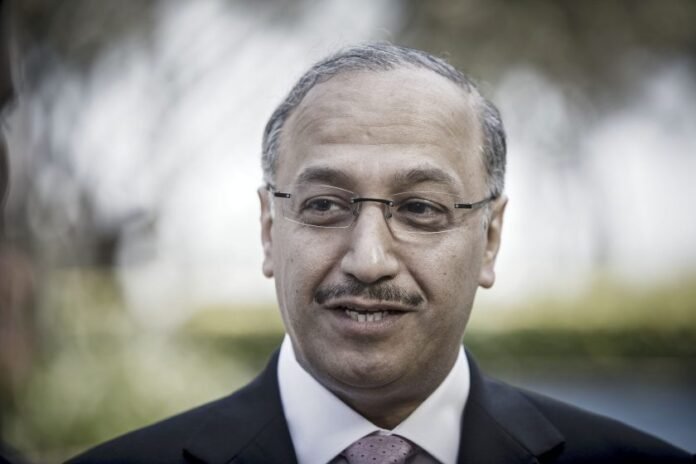
H.E. Yousef Abdullah Al-Benyan was the former chief executive officer of Saudi Basic Industries Corp. (SABIC) Qilai Shen/Bloomberg via Getty Images
Saudi Arabia’s Minister of Education, H.E. Yousef Al Benyan, has urged the global education community to embrace the potential of artificial intelligence (AI) in schools, emphasizing the importance of equipping teachers with digital knowledge and addressing concerns related to cybersecurity.
Speaking at the Global Cybersecurity Forum in Riyadh on Wednesday, he stressed that fear should not hinder the adoption of AI in education, as the benefits far outweigh the risks.
With schools around the world all grappling with how to use AI, Al Benyan told the audience: “We need to recognize that you cannot have an education system above the quality of your teachers. So I think it’s very important that the teachers are the foundation for any success in any education system.”
Al Benyan, who was CEO of the Saudi chemical manufacturing company SABIC before taking up his role in government, stressed that teachers must be digitally equipped with the knowledge to effectively educate current and future generations. This includes a deep understanding of AI and its applications, as well as cybersecurity measures.
“People are sometimes cautious about using AI,” he said.
“But let’s remember, any new technology has its own risk. But as of today, I think we have a very strong technology that will allow teachers to enhance their skill set and research using AI in a safe way.”
Al Benyan, who ranked seventh on the list of the Middle East’s most powerful CEOs in 2021, drew a parallel between embracing AI in education and making decisions in the corporate world, stating: “One thing I learned from business is if you wait to check all the boxes, you will lose the opportunities. You need to calculate your risk and move on.”
While emphasizing the importance of seizing the AI opportunity, the minister also called for caution, particularly in addressing the ethical and values-related aspects of AI in education.
He noted: “We need to be cautious about the implications. From my conversations with global leaders, the issue on AI is not the functionality; the issue is over ethics and values. How can we ethically leverage AI, and how can we create a stronger platform to manage the risk of AI?”
Biden’s executive AI order
The Saudi education minister’s comments come on the back of U.S. President Joe Biden signing an executive order directing his administration to facilitate the integration of AI-driven educational tools, including personalized tutoring technology, into the nation’s education system.
The first action of its kind for the U.S. government represents “the strongest set of actions any government in the world has ever taken on AI safety, security, and trust,” White House deputy chief of staff Bruce Reed said in a statement.
In a recent poll, 49% of parents didn’t think their child’s school was ready for AI tools in education. However, more than two-thirds of parents in the National Parents Union survey of 1,515 respondents see the benefits of AI in schools as outweighing or equal to the drawbacks.
Editor’s note: Fortune was a media partner at the Global Cybersecurity Forum, which provided travel and accommodation for the reporter.









